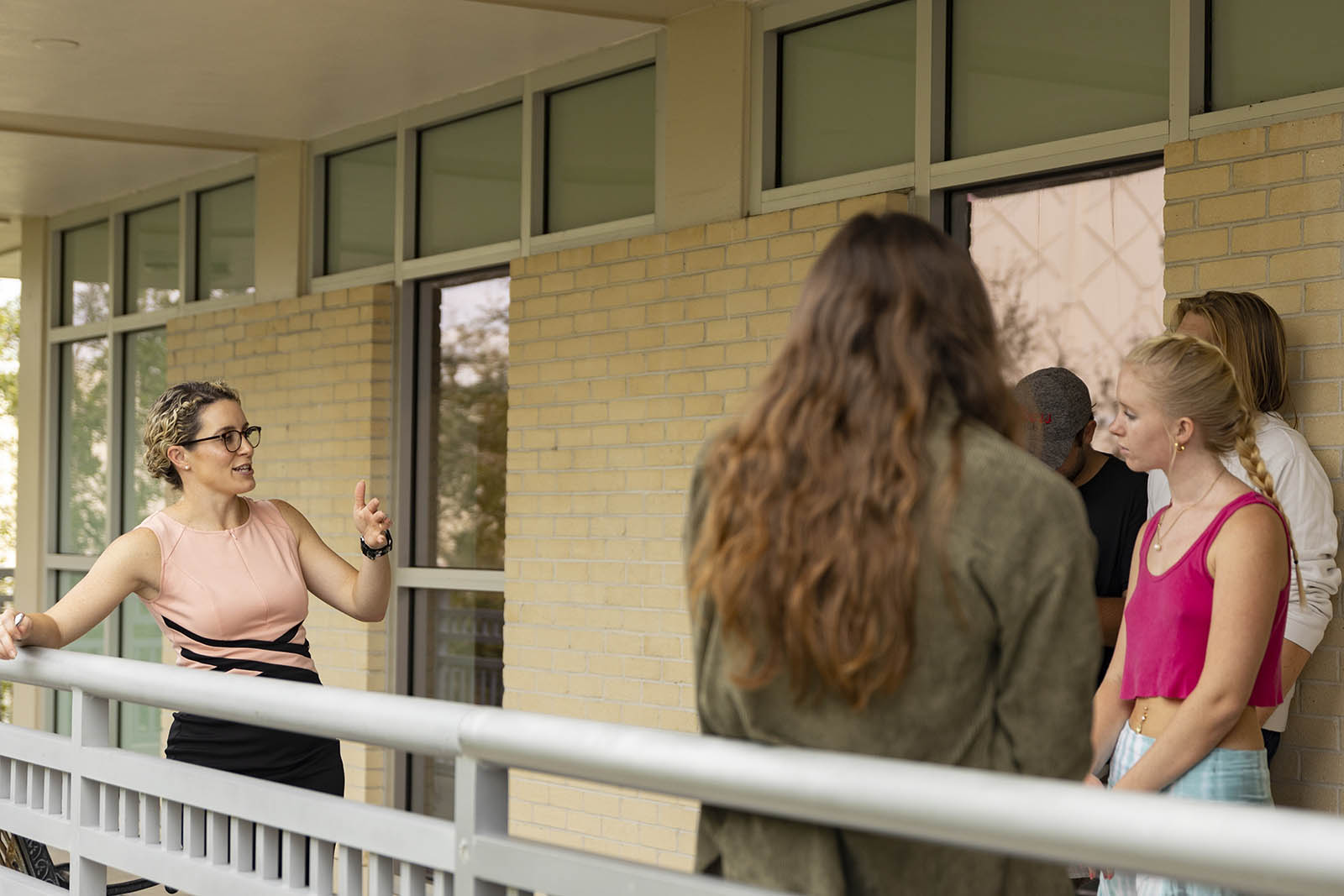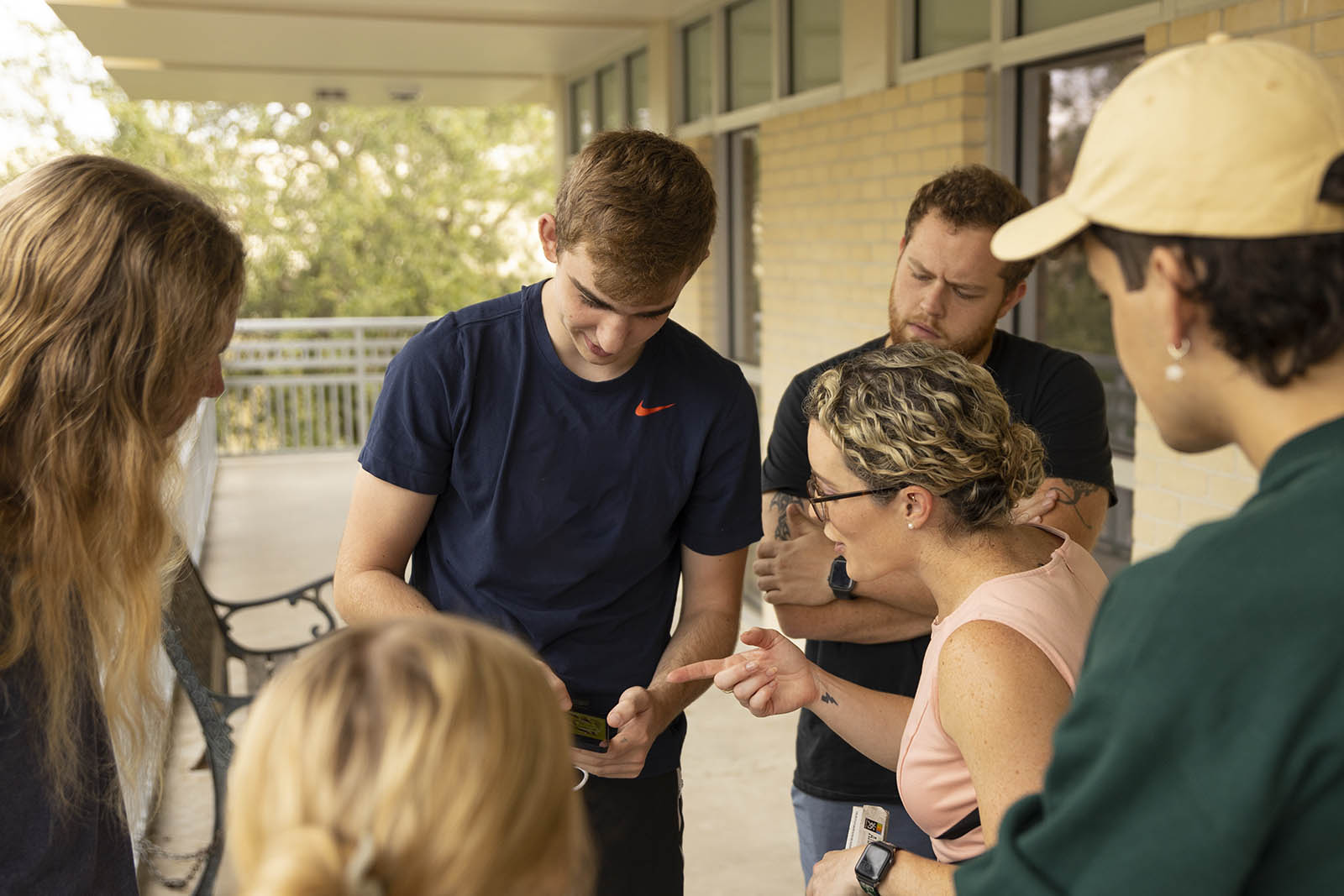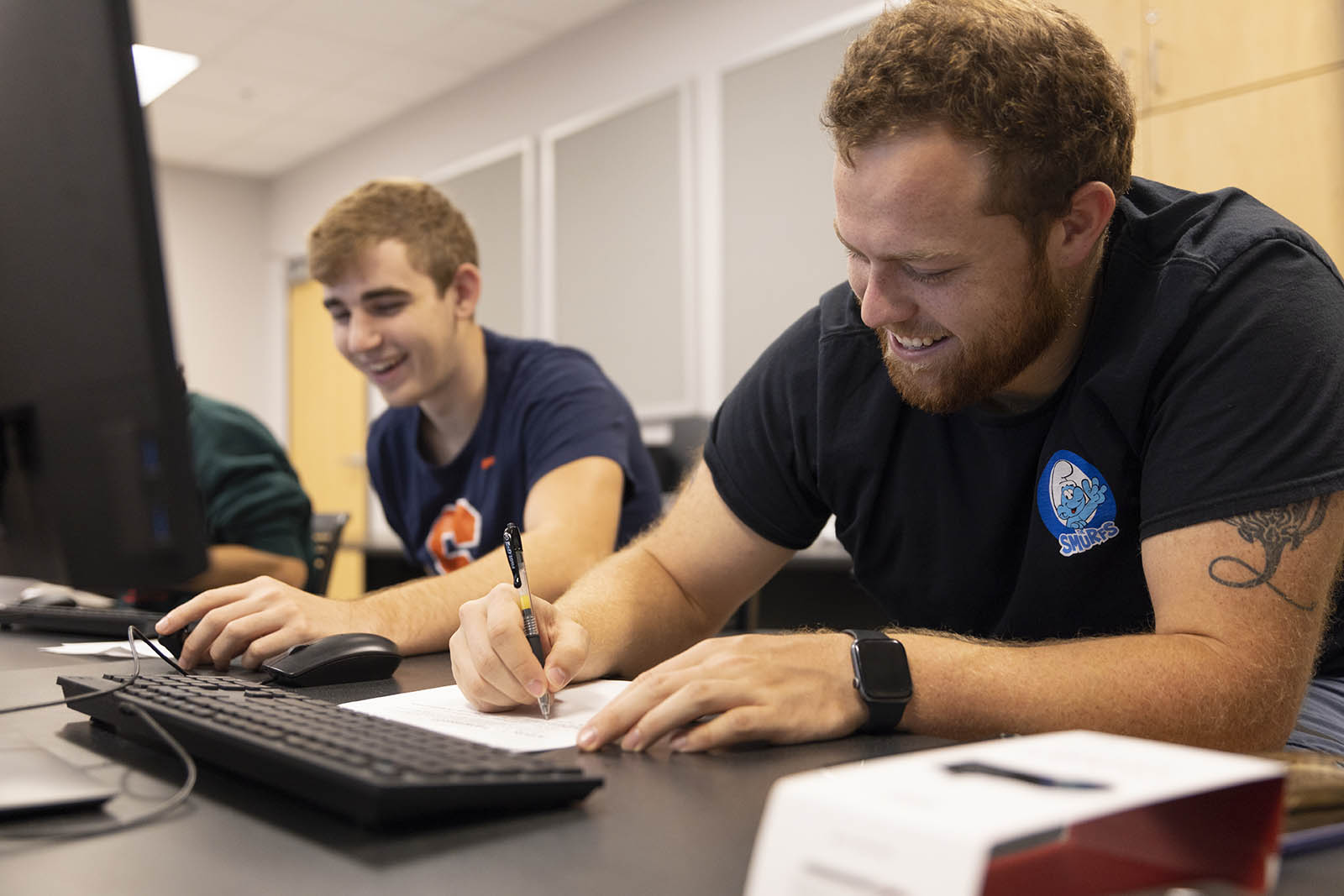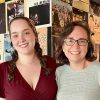Eckerd College students taking a Remote Sensing class raise panes of glass to their faces while group members use their iPhones and special cameras to take thermal pictures of one another.
Assistant Professor of Environmental Studies Amanda Hoffman-Hall, Ph.D., uses the exercise to give her class a baseline for the types of things that might interfere with the detail in thermal imaging.
“Thermal radiation can’t be seen with the eye, so we have to rely on this technology, which varies in quality based on equipment and other factors,” Hoffman-Hall says. “This activity really gives the students a chance to experience those challenges.”
Remote Sensing and Intro to Environmental Studies are the two classes Hoffman-Hall is teaching in her first semester as an Eckerd faculty member—a golden opportunity that materialized at the perfect time for her. The College was searching for an environmental studies professor who could bring together several disciplines in the study of our natural environment. Enter the geographer originally from Dunedin, Florida.
“A geographer is really someone who thinks about the big picture, including all Earth’s systems,” Hoffman-Hall explains. “I love geology, hydrology and meteorology but didn’t like any [one] more than the others. Geography allows me to study all of those things and how they are related to the people who live on Earth.”
In first grade, she swore she’d be a paleontologist because it was the biggest word she knew. It wasn’t until she did well on a remote-sensing test she thought she had failed, as an undergraduate at the University of Oklahoma, that being a geographer seemed like something she might want to do. To earn her doctorate in geographical sciences from the University of Maryland, Hoffman-Hall used satellite imaging—remote sensing—to determine how the environment influenced the risk of contracting malaria in rural Myanmar. Satellite surveys and statistical data revealed that heavily forested areas had higher incidences of malaria diagnosis, possibly due to a particular type of mosquito that prefers forested environments, Hoffman-Hall explains.
That research was made difficult when she lost contact with her research team during the coup in Myanmar. Using technology to identify problems interested her deeply, but Hoffman-Hall wanted her skills to benefit communities closer to home. She recently was appointed as an American Geophysical Union Thriving Earth Exchange Community Science Fellow—as part of a program that recruits scientists to pair with communities with questions or problems in their local environments that require investigations and solutions.
During her interview process with Eckerd, she heard of the faculty’s desire to revive the Remote Sensing course—and that class sizes at Eckerd were a tiny fraction of the lecture halls of 240 students she was instructing in Maryland.
Even as a local native, Hoffman-Hall was surprised to learn that less than 22% of Eckerd’s students were actually from Florida. Everything she was learning about the position and the College made her more excited about the possibilities.
The school being situated in Pinellas County—a short commute from her hometown to campus—meant she could bring her husband and two children back to live near family.
She accepted the job, made the move and went right to work—including formulating a proposal for a new class in environmental health, a topic that lies at the intersection of her passions.
“I’m hoping to do more research and environmental justice work here in St. Petersburg, and Florida more broadly,” Hoffman-Hall says. “I recently mentored a master’s student who was researching the Gopher Resources Battery Facility in Tampa … There are huge opportunities for environmental equity work in this region.”















